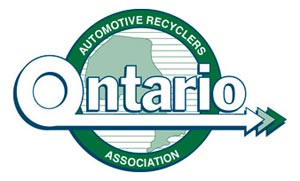Understanding reduction, re-use, recycling and valorization can be a huge benefit.nnAs of June 2017, the Association of Auto Part Recyclers in Quebec (ARPAC) has embodied the 3RV (Reduction at source, Reuse, Recycling and Valorization) Contribution as a small charge on bills for used car parts that are issued by members in the province—10 percent of a total invoice to a maximum of $5. As the automotive industry is always evolving, this contribution is designed to support investments to help lower the environmental impact of end-of-life vehicles. The name of the endeavour, 3RV Contribution, was inspired by the circular economy, which considers everyone involved in the creation and life of a product to figure out the best way to reduce energy and the use of raw materials. Understanding the circular economy model is seen as the best way to partner together from an environmental standpoint, because it considers the whole life of an asset, such as a car, from production to end-of-life.nnARPAC and ARCnARPAC has been geared toward environmental protection for the last 45 years.A member of the Automotive Recyclers of Canada (ARC), ARPAC also contributed to the Canadian Auto Recyclers’ Environmental Code (CAREC), which ensures all members of ARC are audited every three years to meet the national organization’s environmental standards. In addition to the ARC audit, the 34 ARPAC.comm/piecesvertes.com members have an additional third-party audit every two years. ARC supports the 3RV Contribution initiative, as auto recyclers are one of the few industries that can back up the cost of being ahead of environmental regulations. Where AARPAC is concerned, discussions began more than 10 years ago on the obligation to maintain the highest standards in environmental protection. This was just before the start of the mercury switch recovery program, which gave birth to the “Switch Out” program across Canada. There has also been a contribution to a best-practices guide for end-of-life vehicle management, first released by Quebec in 1998.nnEconomic and Environmental InvestmentnARPAC has been investing in environmental protection for the last 45 years, and has seen first hand how the Quebec Environment Quality Act has evolved during this same time. Our goal is to exceed the minimum standards set by the government to ensure that their members are the best in the industry at end-of-life vehicle recycling, and to promote the fact that buying a green part makes good sense ecologically and economically. Environmental protection is something for which we should all be responsible and accountable. If there’s room within an industry or within your area of an industry to stay ahead of the curve, it should definitely be a priority for your business or association.n
